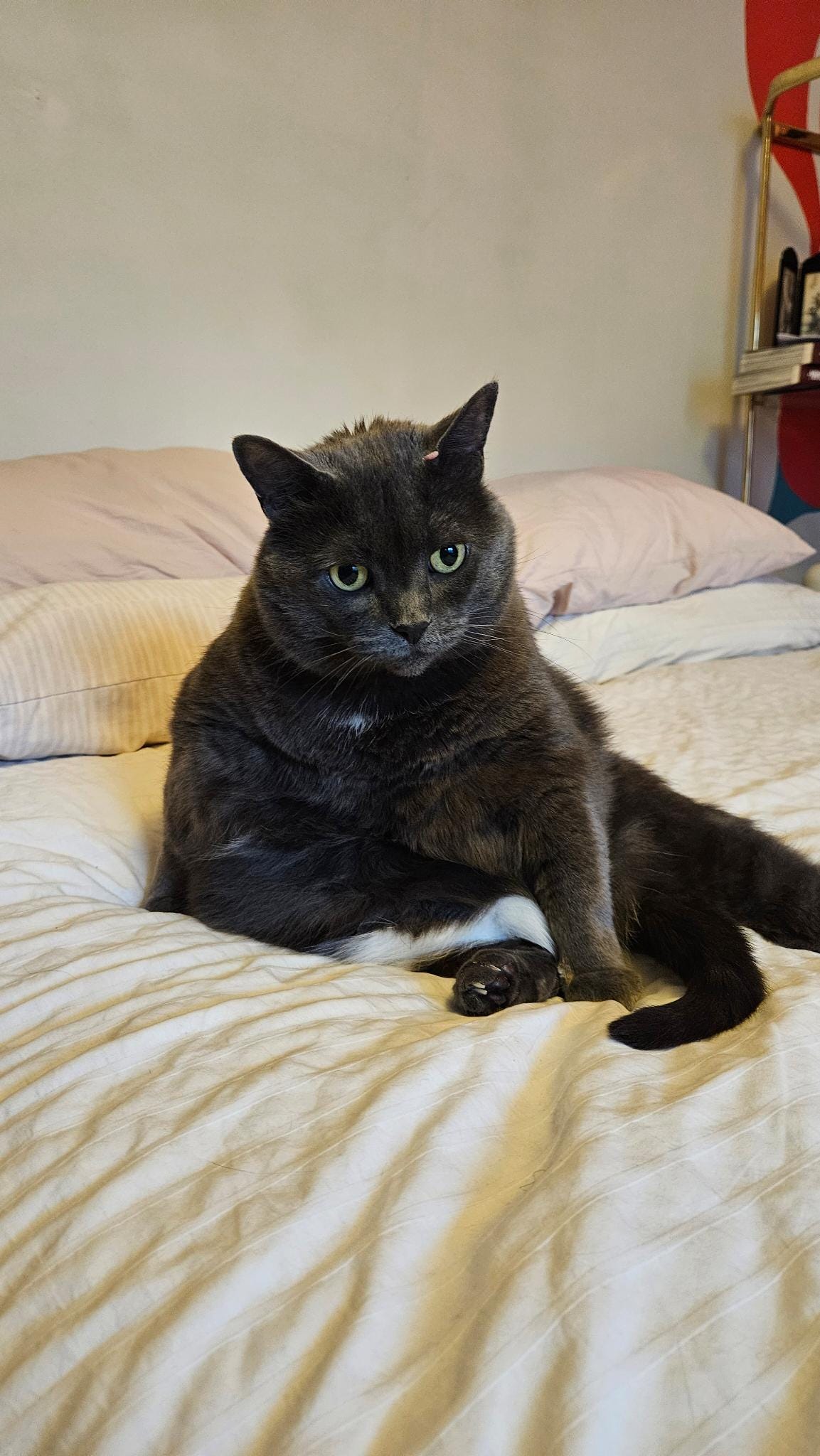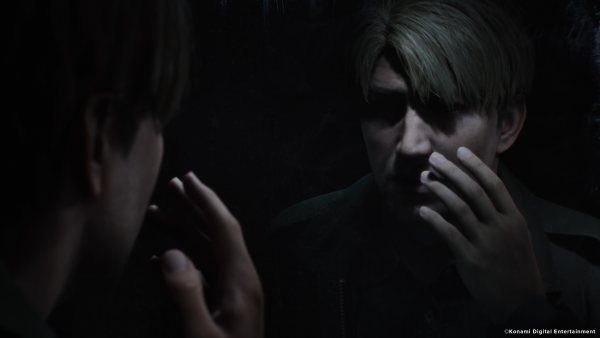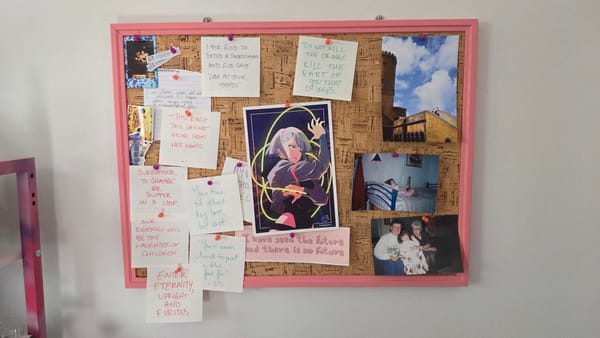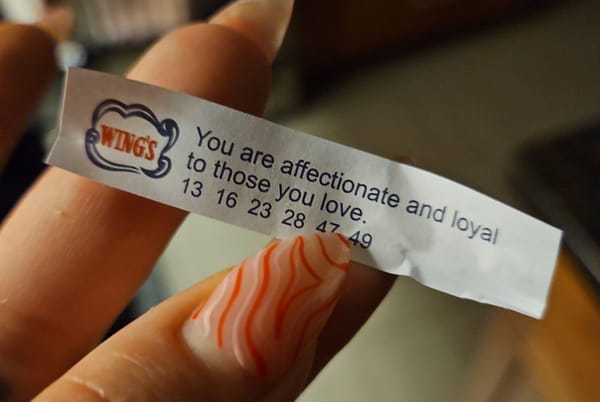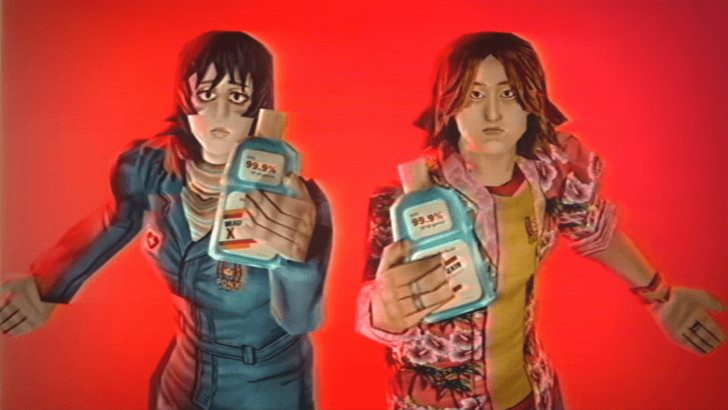It's Not That Serious
Archived from Jan 07, 2025:
Last I wrote here, I was floating the idea of doing book reviews - for those of you who had expressed interest, don’t worry, I haven’t abandoned the idea. Rather, I’ve been thinking about media in general. I’ve been thinking about Mouthwashing, I’ve been thinking about Doechii, I’ve been thinking about Dandadan - I’ve been thinking about media that’s often dismissed due to it’s medium, it’s genre or it’s creator.
I went to school for English Literature and while I enjoyed it I never actually made any friends in my program. I worked a lot through university and once I made it to the honour’s lectures in my third year, I tried to get to know my peers but was always off put by nights at the only campus pub spent with a seeming inability to talk about anything except books. It was not camaraderie, it was an exercise in competitive obscurity, volleying authors and titles back and forth, seeking the one receiving the least recognition, the most hesitation as some stamp of merit and authority. These are incidentally also the years I learned to never be seen with a David Foster Wallace book, but that’s for another time. I couldn’t find the taste for any of it. I remember asking a friend “Do these people not do anything else? No music, no movies, no nothing?”. I loved what I was learning, and even included the short comic Free For All in one of my lectures I presented - why wouldn’t I take the critical lenses we were working on and apply them to the things I love? How is the poem we dissect any different from the lyrics of Aesop Rock? How is the text of No Country for Old Men functionally different than its film counterpart (I would legitimately love to have this conversation)? It made sense to me to love things deeply enough to parse them apart, to see the world unfurl in a myriad of ways both within books and without. If you’ve had the (very subjective) pleasure of me raving after reading/watching/playing a new thing I’ve fallen for, you’ll know I think about things intensely - it’s not just about if I liked it, it’s themes, images, word choice, colour choice, design. I want to drink it all in, greedily, so I can know why I love this thing in particular, I want to pull apart and dissect. I want to see it for all the love and effort put into it.
While I was in university, a founding voice in what I learned critical analysis could be came into my life: Idea Channel. From classics like “Is Over The Garden Wall About Having Faith?” to “But Wait: How DOES The Media Tell You What to Think?”, Mike Rugnetta was making time to analyse things like Steven Universe while challenging ideas, the internet and legacy media all at the same time, well ahead of many journalists. It was exactly what I felt should have been happening - I understand that I was in school for Literature, but it just made sense for what we learned to be applied everywhere, for all kinds of art to be respected and taken seriously, for this to be applied to how we engage with the world at large. Rugnetta, the host of the channel, has a curiosity and hunger for inquiry that I understand: everything is fair game for analysis and you’ll learn so much more about yourself and the world when you’re willing to engage with it. Importantly, he’s willing to be critical of things he loves and I find this is so much of what’s missing in how people discuss media lately. Nuance is lost among the algorithmic slop that seeks intense, flattened reactions causing people to confuse critique for hate, enjoyment for approval and personal taste for quality. Mike became a guiding light for my academics over the years and he’s since gone on to make other notable projects like Reasonably Sound. (I cannot stress how much I recommend all of Idea Channel and basically anything Mike makes).
You can be critical of a thing you love, enjoying a piece of media doesn’t mean you cosign whatever “problematic” things are in it and not enjoying something is not the same as it being bad. I think it’s fine to want to not think about your media, the world is already a lot but to do that requires admitting that’s what you want to do. If you don’t think about your media, you don’t get to be upset when someone else puts in the work and when you do think about it, it doesn’t mean someone else’s interpretation is wrong. Media analysis comes with many lenses because there’s so many ways to look at a single thing and almost never a “right” way.
OK, Rapid fire round:
I, much as the above linked reviewer, nearly bounced off Dandadan right away. As much as I adore manga, one thing I dislike is the frequent oversexualization of teenagers. You don’t have to draw them like that, man! Just don’t! Dandadan starts with a scene that truly put me off but having made it through the special brand of horny that is Chainsaw Man only to find myself sobbing while reading volume 9, I stuck with it. Lo and behold, Dandadan is amazing - it’s weird, it’s gross and it doesn’t care if that makes you stop reading. It’s got well developed, albeit strange characters and a plot so well written it comes back to tiny details set up chapters and chapters ago. I still do not like parts of the opening chapters and think the same messages of discomfort, growing up and finding your place could have been communicated differently.
Mouthwashing is brutal - it’s art is raw and jagged, it’s themes are extreme and unpleasant. I understand why people would be put off of subjecting themselves to something so deeply unsettling but I also think horror is one of those genres that is frequently dismissed because it makes people uncomfortable and suffers projections of approval. Mouthwashing is fundamentally about the violence men will inflict on women and about the extremes they will go to to avoid accountability. Praising the game is not the same thing as approving of the actions some characters take - only a child would think so shallowly about media as to assume someone who likes a game that deals with themes of sexual violence approves of sexual violence. Particularly in games, this is not helped by some of the loudest voices in the room, as a lot of them fucking suck but that’s a different post.
Doechii is an artist - yeah, technically she’s a musician first but to watch the intricacy of her performances, her music videos and persona and not see her as well rounded artist is simply a mistake. You don’t have to like hip hop to see a born performer when Doechii takes the stage and frankly, to ignore that feels dismissive. I worked in beer for a long time and at no point did I ever find an appreciation for German wheat beers - they taste like banana, cloves and other crimes to me but I also knew a good one when I tasted one, one that was made with attention and technique. Learning something well means understanding not everything is for you, it means learning “I don’t like this” and “this is bad” are two very different statements. I do not like when these are confused as being the same. All of these come back to discomfort, to a willingness to be confronted with your own beliefs, to grow and change. Seeking a life without discomfort is to never improve, to never be curious and while so much discomfort is forced upon us by the world, I genuinely believe there is a power to choosing the discomfort that will improve you.
I think a lot about media, about how we consume it and what it means when people don’t or refuse to engage with criticism. All of this to say - it might not just be books I wind up talking about, but if you’ve ever asked me to lend you a book, you know there’s no way they won’t be included? What piece of media do you think would be fun to talk about? Let me know!
Thank you, as always, for being here friends. Sometimes making things is hard, but I’m working on spending more time on things that soothe me or bring me some release.
